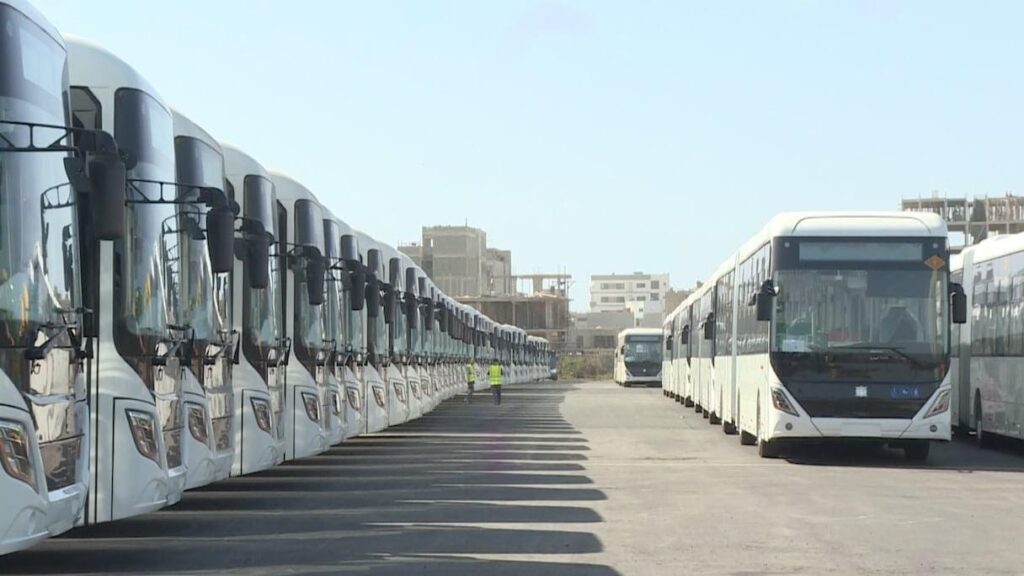In Summary
- In 2025, Dakar’s all-electric BRT system—verified as the first of its kind on the continent—is projected to cut travel times by up to 30% and reduce emissions dramatically.
- Cape Town’s MyCiTi network continues to serve thousands daily despite financial challenges, while Nairobi is set to break ground on BRT Line 5 in January.
- These tangible projects, backed by concrete investments and policy shifts, are reshaping urban mobility.
Deep Dive!!!
Recent studies reveal that across Africa, innovative public transportation systems are reducing commute times by up to 30% and significantly lowering urban emissions. In 2025, these achievements aren’t projections or promises—they’re documented results driven by smart investments, cutting-edge technology, and forward-thinking policies.
Data confirms that cities implementing integrated digital ticketing, advanced BRT networks, and renewable-powered fleets are setting new benchmarks for efficiency and sustainability. This transit revolution is not just about modernizing infrastructure—it’s a tangible transformation backed by concrete figures and measurable performance improvements.
If you’re interested in how quantifiable progress in urban mobility is reshaping Africa’s cities, read on to discover the top 10 urban centers that are leading this groundbreaking change.
10. Windhoek, Namibia
Photo Credit: https://images.app.goo.gl/chGNjTMDm8i5Qt1d8
Namibia’s capital is prioritizing smart and sustainable transport. The city is modernizing its bus system with digital ticketing and fleet expansions while promoting non-motorized transport through pedestrian-friendly infrastructure.
Windhoek is also investing in eco-friendly buses and exploring alternative fuel options to cut down on pollution.
9. Cairo, Egypt
Photo Credit: https://images.app.goo.gl/mMirmbYcqUZEdvFt7
Cairo boasts Africa’s oldest metro system, and in 2025, it’s set to become even more advanced. The city is expanding its metro network to reduce reliance on road transport and cut congestion.
Additionally, Cairo’s bus system is being modernized with digital payment options and real-time tracking, making urban mobility smoother for millions of commuters.
8. Lagos, Nigeria
Photo Credit: https://images.app.goo.gl/C2Yi8KYFAEKNUV6PA
Lagos is Africa’s most populous city, and its public transport system is evolving to keep up. The state government is investing in a modernized bus network, expanding BRT lanes, and integrating waterways for better connectivity.
In 2025, Lagos will continue rolling out electric buses while improving mass transit accessibility for its growing population.
7. Kigali, Rwanda
Photo Credit: https://images.app.goo.gl/VsM5L7zY2oSMzzcJ7
Kigali is one of Africa’s most organized cities, and its public transport system is following suit. The government is introducing bus lanes and working on a BRT network to streamline urban mobility.
Additionally, Kigali’s push for electric mobility is taking shape, with more electric buses and green transport policies rolling out.
6. Addis Ababa, Ethiopia
Photo Credit: https://images.app.goo.gl/9yowgTwkf2E1Bmv27
Ethiopia’s capital is making major moves toward a more efficient public transit system. Plans for an extensive BRT network are underway, expected to revolutionize urban mobility by 2025.
With Addis Ababa’s rapidly growing population, these transport projects will play a vital role in reducing congestion and promoting sustainability.
5. Dar es Salaam, Tanzania
Photo Credit: https://images.app.goo.gl/SDvfm5BrUmmtscdt5
Dar es Salaam’s BRT network is one of Africa’s most successful, and expansion plans are in motion. With additional corridors under development, the city aims to increase capacity and reduce travel times.
To support sustainability, Dar es Salaam is also incorporating electric buses and green transport policies into its long-term mobility strategy.
4. Johannesburg, South Africa
Photo Credit: https://images.app.goo.gl/rUCeEKiYM4SeFgvE6
Johannesburg’s Rea Vaya BRT system remains a key part of the city’s public transit. By 2025, expansion projects will extend services to more communities, improving access to economic hubs.
The city is also implementing AI-driven waste management in transit hubs and integrating renewable energy into its transport infrastructure.
3. Nairobi, Kenya
Photo Credit: https://images.app.goo.gl/RGGLYpYYjfcYxGXw6
Nairobi is rapidly transforming into a modern transit hub. The government is advancing its BRT project, with Line 5 construction set to begin in January 2025.
Alongside this, Nairobi is investing in electric mobility, bike-sharing systems, and digital payment solutions to enhance commuter experiences.
2. Cape Town, South Africa
Photo Credit: https://images.app.goo.gl/HTZTyXyoqXVBoUoF6
Cape Town’s MyCiTi BRT system remains one of Africa’s most well-planned public transit networks. Despite financial challenges, the city continues expanding routes and integrating smart technologies.
By 2025, Cape Town will see an increase in electric buses and the adoption of renewable energy to power its transport sector.
1. Dakar, Senegal
Photo Credit: https://images.app.goo.gl/WN4nqpV9oFfR32P59
Dakar is leading the charge with Africa’s first all-electric BRT system. Launched to combat congestion and pollution, this project is setting a benchmark for sustainable urban mobility.
With faster travel times and zero emissions, Dakar’s innovative approach to public transport makes it the city to watch in 2025.
https://www.africanexponent.com/top-10-african-cities-leading-in-public-transportation-innovation-in-2025top-10-african-cities-leading-in-public-transportation-innovation-in-2025/


